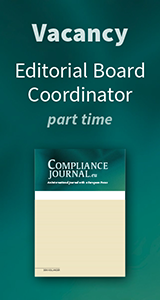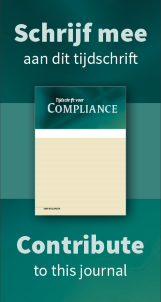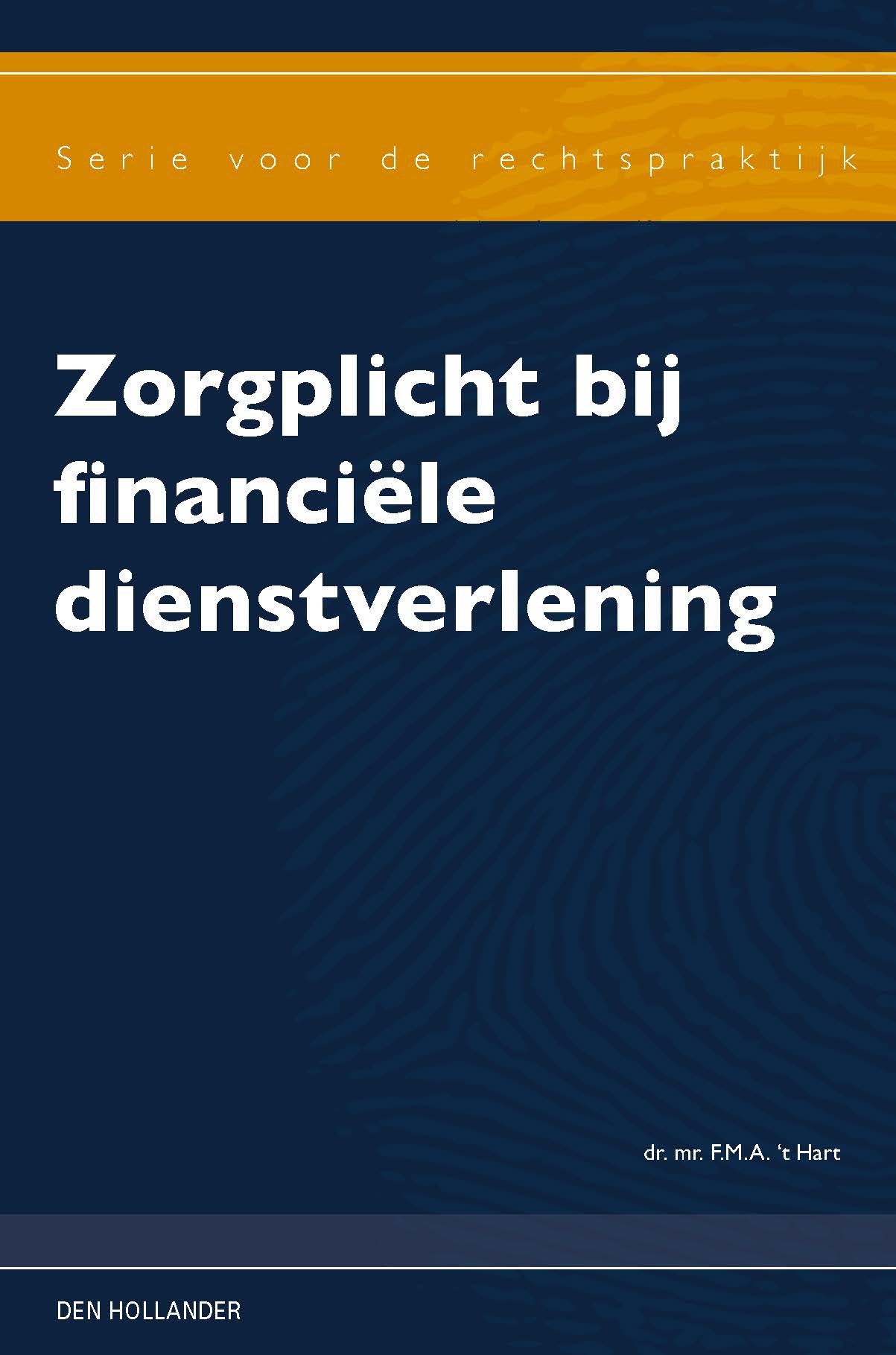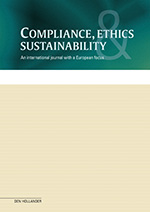We Have Been Nominated!
Het artikel is in de opmaak van het tijdschrift rechts als pdf beschikbaar.We Have Been Nominated!
The Compliance, Ethics & Sustainability Journal has been nominated for the National Compliance Award, and for a good reason.
Voting for the nomination round is now open and will close on 25 March 2024 via the following link:
https://compliance-instituut.nl/over-ons/nationale-compliance-award/
The Netherlands Compliance Institute annually facilitates the election and presentation of the National Compliance Award to the person or organization that has made a special contribution to the field of compliance and the professionalization of the compliance function in particular. In the approximately 25 years that compliance has been anchored in organizations in the Netherlands, it has grown into a mature field in which specialists from various disciplines work. In various sectors, compliance has become an important part of the organization and is often embedded on the basis of legal obligations. Established in 2004 the award has the aim of stimulating developments in the field and further professionalizing the compliance function.
And now for the first edition of this year's journal, published in March 2024, with the theme, Financial Crime.
When talking about compliance, Financial Crime is the topic that first comes to mind for many people. Whether it be with regard to controls and procedures to ensure that an organization is robustly protected from external threats; or ensuring that employees and stakeholders are abiding by the rules to minimise the risks from the more insidious and, by some studies, more prevalent insider threat. The authors and interviewees in this edition look at international regulations, including in the crypto sector and anti-money laundering and counter terrorist financing area. Regarding the latter, EU and UK legislation on AML/CFT are compared, the development of the Risk-Based Approach in the Netherlands is discussed, and a practitioner shares their personal views on lessons learned in this area. We further look at forensic investigations from different perspectives and in the two interviews in this edition, the proposed changes to the EU anti-corruption framework and last year's publication of the Dutch Industry Baselines are discussed. We conclude on a philosophical note: in his 90th (!) contribution, Edgar Karssing shares his recommendations for books on philosophy.
Meredith M. Fitzpatrick and Peter Bott
Meredith M. Fitzpatric and Peter Bott, who are both consultants in the area of cryptocurrency, investigations, and compliance, explore whether clear regulations can actually be a competitive advantage for the European Union as the Markets in Crypto Asset Regulation comes into force and compare it with other global legislation. Their article gives compliance professionals some insight into the regulatory priorities of different jurisdictions and potential law enforcement actions to come.
Jeroen Boogaard interviews Helene Erftemeijer of the Dutch Association of Banks
Last year, the Dutch banking association (Nederlandse Vereniging van Banken published a set of guidelines known as the NVB Industry Baselines. The Industry Baselines set out standards for the risk-based application of the open norms in the Money Laundering and Terrorist Financing (Prevention) Act for Client Due Diligence (CDD) by banks. CDD means the act of collecting identifying information to verify a customer's identity and more accurately assess the level of criminal risk they present, divided into Risk-based Industry Baselines and Sector Industry Baselines. Aim is to provide guidance on how to adequately implement the risk-based customer due diligence approach, described for and by banks and in consultation with the Dutch Central Bank and Ministry of Finance. Jeroen Boogaard spoke with Helène Erftemeijer about the creation of the new Industry Baselines.
Neil Williams, Stan Reiz, Charley Weldrick
The global effort to fight financial crime is never-ending and countries will continue to develop their own laws as they see fit to protect their citizens. As the dust still settle from Brexit, Neil Williams, solicitor, Stan Reiz, Kings Counsel and Charley Weldrick, Counsel, question whether the EU or the UK have more effective Anti-Money Laundering and Counter Terrorist Financing capabilities. Whilst once fully aligned, the two jurisdictions have now gone their own ways and this article examines whether cracks have begun to develop. An interesting dilemma considering the particularly international nature of these issues.
Maud Bökkerink
For two decades, there has been a call for a more risk-based approach to Anti-Money Laundering and Combating the Financing of Terrorism (AML/CFT). Although the Dutch AML/CFT Act permits such an approach, supervisory enforcements measures over the past years illustrate that implementing a Risk-Based Approach (RBA) within AML/CFT measures is far from straightforward. Collaborative efforts and recent (draft) guidance provided by the Dutch central bank (De Nederlandsche Bank) and the Dutch banking association (Nederlandse Vereniging van Banken) articulate the principles underpinning the RBA, aiming to enhance the effectiveness of the financial sector's response to AML/CFT challenges. However, with developments in the EU AML/CFT framework, the extent to which an RBA can be sustained remains an open question.
This article seeks to explore the development of the RBA in AML/CFT compliance within the Netherlands, highlighting the collaborative efforts between supervisors and financial institutions and the strategic shifts in guidance. This article will also look to the future of the RBA in light of developments in the EU AML/CFT framework.
Frank Erkens
In de 'driver's seat' of op de achterbank? Compliance officers kunnen direct of indirect betrokken zijn bij het opstellen van beleid en procedures voor forensische onderzoeken dan wel bij de uitvoering van zo'n onderzoek. Om in die rol op een professionele manier in de 'driver's seat' sturing aan het onderzoek te kunnen geven, is het met het oog op de belangen van de diverse betrokkenen, de bestaande wettelijke verplichtingen en de maatschappelijke ontwikkelingen noodzakelijk het 'waarom', 'wat' en 'hoe' van deze onderzoeken goed te begrijpen en te kunnen toepassen. Frank Erkens gaat in op de wetenschappelijke achtergrond van onderzoeken vanuit verschillende invalshoeken, het juridische normenkader, het epistemologische normenkader en geeft uiteindelijk een aantal handvatten aan de compliance officer, zodat deze daadwerkelijk in de driver's seat kan plaatsnemen.
Jeroen Boogaard interviews Jeroen Blomsma, Head of Sector Anti-Corruption at the European Commission
The EU is stepping up the fight against corruption and has proposed new legislation. Jeroen Boogaard spoke with Jeroen Blomsma, Head of Sector Anti-Corruption at the European Commission, about the updated directive and its potential impact on companies.
In her 2022 State of the Union Speech, Commission President von der Leyen announced to update the EU's legislative framework on anti-corruption to better prevent and fight corruption across the European Union in the future. On 3 May 2023, the Commission presented a new proposal to combat corruption by criminal law. Jeroen Blomsma elaborates on the reasons, the proposal and the wider consequences of this new legislation.
Maria Shalimova
In her contribution to this journal Maria Shalimova provides a personal practitioner's view of lessons learned, challenges and ways forward within the AML compliance banking industry. The aim of her article is to reflect some regulatory and market developments over the last years and to consider future directions and ways forward in evolution of financial crime trends, systems and controls. This article addresses professionals working in the financial sector, in particular, AML compliance officers and financial crime investigators, risk managers, internal and external auditors, quality assurance managers as well as students of banking and financial laws and other fields within the financial markets.
Edgar Karssing
In zijn alweer 90ste (!) bijdrage aan ons tijdschrift gaat Edgar Karssing in op zijn verborgen agenda. Deze bestaat eruit om mensen enthousiast te maken voor het mooie vakgebied van de wijsbegeerte. Filosofie en filosoferen kan bijdragen aan goed leven en samenleven, aan gemoedsrust en wederzijds begrip. En omdat filosoferen van zichzelf een waardevolle activiteit is. Filosofie betekent letterlijk 'liefde voor de wijsheid'. In de rubriek 'boekenkast' zet Edgar zijn verzameling boekentips bij elkaar voor iedereen die een goed, toegankelijk filosofieboek willen lezen. Belangrijke criteria zijn daarbij: Nederlandstalig (dat mag in vertaling) en in de goede boekhandel verkrijgbaar.
We hope you enjoy the edition and please don't forget to vote!
Marlon Straathof, Frank Segers, Edward Nkune




